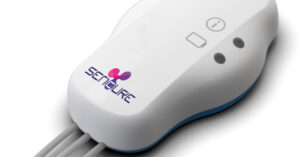Launched in 2016 by Rajiv Mathur to obviate the need for extended stays at hospitals, Delhi-based (CCU) claims to have stayed profitable in its five-year existence and that it has grown with the founder’s equity and internal accruals.
The startup is present in seven locations where they have their main hubs (setups) and about another 20 locations where they provide services.
The motive was to provide superior services at lower costs in-home healthcare, and do away with the need for an extended stay at hospitals.
CCU helps patients transition from hospital to home with ease, following protocols specific to an illness or condition. The healthcare startup offers monitoring and support equipment along with providing the services of medical practitioners, nursing help, and medical attendants.
It delivers hospital-grade, ICU-style care in the comfort of one’s own home, offering a complete package and solution for the patient, “including but not limited to medical equipment, medical staff, accessories, and consumables”.
In an interaction with YS, Rajiv says, “Once the surgery or the acute phase is over, CCU migrates the patient to the home, resulting in three significant benefits – significantly lower costs, reduced risk of nosocomial infections, and less stress for the family.”
The startup closely coordinates with hospital and family doctors to follow the administration of drugs specified in the treatment.
At present, CCU provides critical care and services in neurology, oncology, pulmonology, cardiology, and organ transplants.
The startup was founded to focus on critical care services, starting with neurology. Around 40 percent of patients seek treatments for neurological issues.
Other at-home services that are now witnessing high demand include dialysis, chemotherapy, pacemaker interrogation, different types of infusions, blood and platelet transfusions, monoclonal therapy, and remdesivir administration.
CCU has started offering these services, along with its core services, before the onset of the pandemic but it saw high demand during and post pandemic as most people preferred avoiding hospital visits because of the risk involved. The startup plans to mass implement them across geographies this year.
To supplement these services, CCU is also implementing a range of investigations at home, including ECG, ABG, and X-rays.
CCU operates with a core team of 75 members, an extended group of 150 members, and a unique on-demand workforce model that has trained and groomed over 1,600 clinical resources – on-demand contractors – over last five years.
“With this model, CCU has a much wider choice of resources and expertise, and the leverage of scaling up operations across a large number of cities,” Rajiv says.
CCU claims to have served around 28,048 critical care patients in the last five years.
The healthcare startup, which began operations in Delhi-NCR, at present offers services in Delhi/NCR, Mumbai, Bengaluru, Chandigarh, and Ludhiana. It has plans to expand to Pune and Kolkata next.
YS Design team
The unique model of service delivery, monitoring, and support has allowed the startup to extend all its offerings to far-flung places and small towns like Aligarh, Moradabad, Farrukhabad, Udaipur, Shillong, Dibrugarh, Bhubaneshwar, Indore and Pilkua, among many others.
The core: technology
Patients come to CCU via tie-ups with hospitals and doctors. It then sets up critical care (ICU, long-term ventilation support, and tracheostomy care) environment for the patient in the comfort of his/her home.
Technology is at the core of this operation. The patient’s condition is monitored by caregivers and information is relayed to doctors, who provide advice, all on a 24×7 basis, through the use of dedicated apps and other technologies. If the patient has to be moved to hospital in case of an emergency and brought back home after the emergency is tackled, technology runs the logistics.
This is done by creating a WhatsApp group with key members – including the patient, treatment doctors and the oversight doctor. The patient’s daily vitals or other parameters including their lab reports, ABG reports, etc are all added to the group.
“Since that data is in a structured format that is then fed into the system, we are able to create trends, and that we feed back into the system. So every week or every 15 days, we do the review with the doctors,” Rajiv adds.
As a strategic partner for critical care at home, CCU is working with premier hospitals such as Medanta, Jaslok, Saifee, Fortis, Terna, IBS, IVY, and Grecian.
Many more such relationships are in the pipeline, apart from the solid endorsement from senior, globally recognised doctors and clinicians, Rajiv claims.
Target audience, traction and revenue
CCU’s target audience is anyone who requires in-home critical and ongoing care. This is frequently after a hospital stay, and most of the patients are between the ages of 70 and 90.
India’s home healthcare market size was pegged at $ 5.2 billion in 2019 and is projected to expand at a compound annual growth rate (CAGR) of 19.2 percent from 2020 to 2027.
Largely serviced by a mix of organised, semi-organised, and unorganised players, India’s home healthcare industry is only set to grow with the increase in the ageing population, migration from Tier II and III cities to metros, and increasing cost of caregiving at hospitals and other medical institutes.
CCU claims to be profitable since inception, with a steady growth in revenues.
From an annualised revenue figure of Rs 1.24 crore for FY17, CCU’s revenues have grown to Rs 15 crore for FY22and an ARR of Rs 30 Cr for FY23, resulting in a CAGR of nearly 60 percent.
Navigating COVID-19 and the impact
CCU’s experience in providing critical care came in handy amid the COVID-19 pandemic.
With rigid adherence to protocols engrained within the CCU implementation methodology, it rapidly trained staff to provide complete isolation services in the home, including quarantine of the family, to limit the spread of the virus. This helped reduce pressure during the second wave when traditional healthcare systems and infrastructure collapsed.
Rajiv says, “CCU was able to cater effectively to over 3,000 complex cases of COVID-19 that required comprehensive ICU care at home. With the experience of CCU’s COVID services at home, the consumer is now convinced of our capability, which has shown significantly enhanced adoption of high-grade healthcare services in the home.”
Funding and way ahead
Currently bootstrapped, the company plans to embark on a capital raise programme of Rs 150 Crore, in phases, “over the next 30 months”.
The healthcare startup has drawn up a tech-driven and robust expansion plan for the next five years, including –
- Expansion of critical care services to 25/30 cities across India, backed by technology and powered by the unique hub-and-spoke strategy.
- Expansion into select foreign locations where there is a pressing need.
- Implementation of a technology blueprint that will positively impact outcomes via analytics, artificial intelligence, and the internet of things.
“India’s healthcare industry is at an inflection point; within which, home healthcare provides a strategic leverage to make availability more penetrative, consistency in quality through technology and making care more outcome driven,’’ Rajiv signs off.










